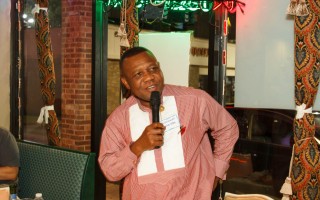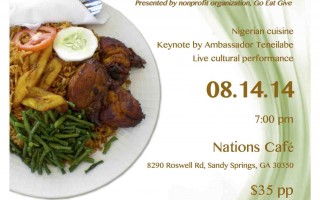
Last Thursday, I received another lesson in my cultural education, courtesy of Go Eat Give at its August Destination Dinner. The country of focus was Nigeria, a populous African nation that has been plagued by a lot of social issues recently, resulting in an image that isn’t very flattering or inviting. Leading up to this […]
view the post

Nigeria, also referred to as the “Giant of Africa,” is located in West Africa between the Republics of Benin, Chad, Cameroon, and Niger. With over 174 million inhabitants, Nigeria is the most populous country in Africa, and the seventh most populous in the world. It is made up of over 300 ethnic groups speaking more […]
view the post